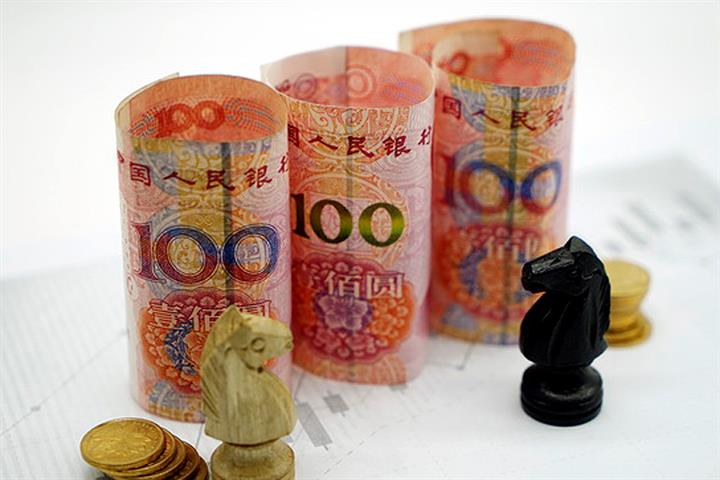 Overseas Investors Tuck Into Chinese Bonds as Yuan Skylarks
Overseas Investors Tuck Into Chinese Bonds as Yuan Skylarks(Yicai Global) Nov. 19 -- China’s central bank operations have not restrained a soaring yuan as foreign investors pile into the nation’s bonds, prompting global bankers to predict an even stronger Chinese currency next year.
The yuan has been giving the US dollar a run for its money of late, with the onshore yuan closing at 6.5425 against the buck as of 4.30 p.m. yesterday after the People’s Bank of China bolstered the central parity rate by 169 base points to 6.5593. Offshore, the yuan was at 6.5415 at 6.20 p.m., a 29-month high.
International investment banks have generally raised their outlook for the redback in 2021 to 6.2 to 6.4 versus the US dollar from 6.5 to 6.7.
Developed countries have failed to contain the pandemic, the China-US interest rate differential is at a record high, Chinese and foreign monetary policy cycles are engaged in a tug of war and capital is swamping China’s stock and bond markets, which are key factors and show no signs of reversal in the near term. The yuan’s inexorable ascent will therefore be hard to brake, according to market insiders.
The PBOC has canceled the reserve fund for forward foreign exchange purchases, suspended the countercyclical factor and set the yuan on a free-floating trial, Iris Pang, China chief economist with financial services provider Internationale Nederlanden Group, told Yicai Global.
The currency’s gyrations have become more intense this year, with a zenith 7 percent higher than last year’s nadir, and the difference this year being nearly 10 percent as of Nov. 9, Pang said. The disparity will grow to 13 percent next year, meaning the yuan-dollar exchange rate will fluctuate between 6 and 6.8 and reach 6.3 by the end of 2021, she added.
China's control of the coronavirus outbreak has been tops since the advent of colder weather in the northern hemisphere, but central banks are still fretting over a worsening impact on the economy even if vaccines succeed, and so will not change their easing plans for the time being.
Euro, Yen Under Pressure
This is triggering currency devaluations in other countries, and the yuan’s appreciation also against the euro, Japanese yen and Australian dollar has been between 4 percent and 6 percent, said Yang Aozheng, chief market analyst at foreign exchange brokerage FXTM.
The quasi-free-floating status underpinning the yuan’s rise warrants far more attention than the climb itself. The PBOC has barely intervened, and the Chinese currency’s fluctuations fully demonstrate the independent behaviors of domestic and foreign trading power and companies.
The redback has been on an upward streak for nearly six months, something not seen since 2013, Yang said.
The yuan is not a truly free floating currency yet because it still has a 2 percent daily up-down limit. Extending this range is unnecessary for now, as is officially cutting the currency adrift, experts generally agree.
China has adopted a two-way opening-up approach to lift pressure on the redback’s appreciation, including upping the limit on foreign investments by, for example, granting fresh quotas under its outbound Qualified Domestic Institutional Investor scheme, promoting investments between the mainland and Hong Kong under the stock and bond connects and the cross-boundary wealth management connect, and encouraging domestic insurers to invest more overseas.
Global capital’s ever-greater eagerness to enter China is pushing tidal inflows into the country’s bond market. Overseas bonds under the custody of China Central Depository and Clearing totaled about CNY2.7 trillion (USD411.6 billion) as of the end of last month, up CNY86.6 billion (USD13.2 billion) or 3.34 percent from the month before, an increase for a 23rd month in a row since December 2018.
Overseas funds are likewise streaming into the nation’s stock market. The net inflow of northbound funds has pooled to CNY33.3 billion this month and CNY127 billion so far this year.
Editor: Ben Armour